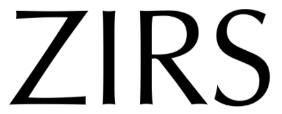Dr. Rodney Harrison [Reader in Archaeology, Heritage and Museum Studies at the Institute of Archaeology, University College London]
Dr. Britta Rudolff [Visiting Professor in Cultural Management at the BTU Cottbus, and ICOMOS World Heritage Advisor]
Centre for Interdisciplinary Area Studies, Martin Luther University Halle-Wittenberg and Research Group The Global Political Economy of Cultural Heritage, MPI for Social Anthropology, in cooperation with the Network Cultural Heritage Studies, MLU
Zentrum für Interdisziplinäre Regionalstudien
Reichardtstraße 6
06114 Halle/Saale
Assembling alternative futures for heritage: Towards an ontological politics of heritage in the age of the Anthropocene (Rodney Harrison, University College London):
Rather than rehearse well known arguments regarding the indivisibility of nature and culture, this paper considers the implications of the expanded field which is created for heritage, as one of the principal arenas in which this modern division has been maintained, when this dissolution is taken as given. We live in a geological era in which what we once took for granted as the human and non-human have also become folded together in complicated ways. I will make particular reference to a new research programme Assembling Alternative Futures for Heritage which is concerned with exploring the ways in which specific forms of value, and indeed, the future itself, is assembled in a broad and heterogeneous variety of alternative domains – from nuclear waste disposal sites, to seed banks, frozen ark projects and endangered language conservation projects – and the potential for the development of innovative knowledge transfer across such domains to highlight the connections between that which we have conventionally called cultural heritage and other issues of contemporary and future ecological and social concern.
All heritage is poetry (Britta Rudolff, BTU Cottbus, World Heritage Studies):
In recent years, established heritage categorizations, expressed in dichotomies such as intangible and tangible, culture and nature, or authorized and unauthorized, have been increasingly questioned. Rather than reiterating arguments against these divisions, the paper proposes to perceive all heritage in merely one category. Inspired by thoughts presented by the philosopher Martin Heidegger, it claims that all heritage is essentially poetry, the product of poiesis. As such, it is not only created by a single act of poiesis, but nurtured in existence by constant re-creation – a continuous process of poiesis.
